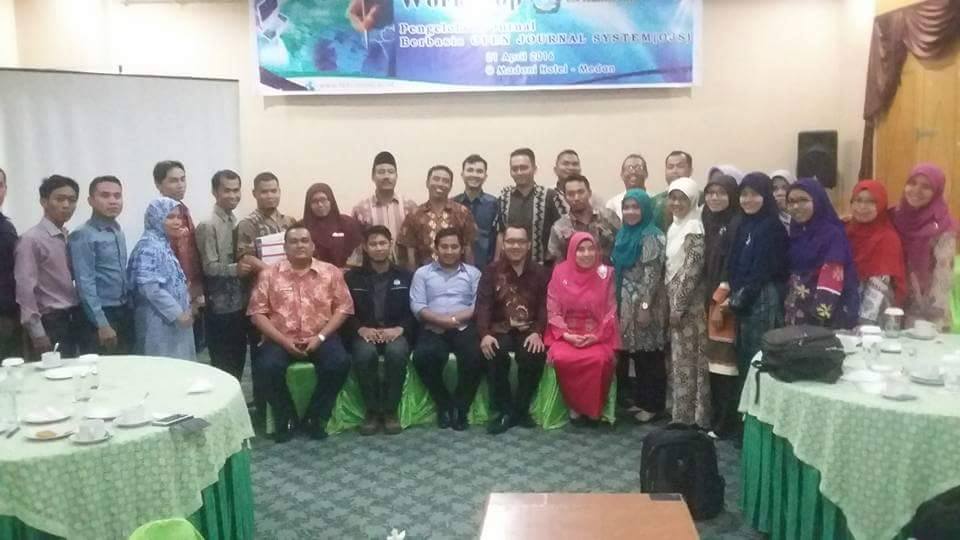EVALUASI KINERJA BMT AL FATAYA DALAM MENINGKATKAN DAYA SAING BERDASARKAN PRINSIP EKONOMI SYARIAH
Abstract
great opportunity to become a pilot BMT at both the Payakumbuh City and
Provincial levels. This is because BMT Al Fataya is growing rapidly from year to
year in terms of the number of members and branch offices. Therefore, the
formulation of the problem in this research is how to evaluate the performance of
BMT Al Fataya in increasing competitiveness and what is the view of sharia
economics towards evaluating the performance of BMT Al Fataya in increasing
competitiveness. Data collection techniques are observation, interviews and
documentation with qualitative descriptive analysis using purposive sampling
techniques. Based on the results of this research, the performance evaluation
carried out by BMT Al Fataya is good, where the strategy has been achieved and
implemented well and evaluated regularly. Apart from that, in implementing the
strategy concept of sharia economics has also been implemented.
Keywords
Full Text:
PDFReferences
Ayunda, L. G. (2024). Pengaruh Teknologi Informasi Terhadap Peningkatan Efisiensi Proses Bisnis di Sektor Perbankan.
Dasopang, N. (2023). BMT Sebagai Lembaga Keuangan Syariah. Islamic Circle, 3(2),
–71. https://doi.org/10.56874/islamiccircle.v3i2.1138
Fashihuddin, A. (2020). Eksistensi BMT sebagai Baitul Maal Wat Tamwil dan Problematika Hukumnya. el-Qist jurnal of islamic ekonomies and businnes, 10(1), 89–104. http://jurnalfebi.uinsby.ac.id/index.php/elqist/article/download/275/207/
Inayah, N., & Soemitra, A. (2022). Fiqih Muamalah Uang dan Lembaga Keuangan: Studi Literatur. Jurnal Ilmiah Ekonomi Islam, 8(3), 2966. https://doi.org/10.29040/jiei.v8i3.6777
Iskandar, D. (2018). Strategi Peningkatan Kinerja Perusahaan Melalui Pengelolaan Sumber Daya Manusia Dan Kepuasan Kerja Dan Dampaknya Terhadap Produktivitas Karyawan. Jurnal Ilmiah Bisnis dan Ekonomi Asia, 12(1), 23–31. https://doi.org/10.32812/jibeka.v12i1.8
Jahar, A. S., Prasetyowati, R. A., & Subchi, I. (2024). Governance and outreach of Islamic microfinance (BMT) toward cash waqf. Religion, Education, Science and Technology towards a More Inclusive and Sustainable Future: Proceedings of the 5th International Colloquium on Interdisciplinary Islamic Studies (ICIIS 2022), Lombok, Indonesia, 19-20 October 2022, 254–260. https://doi.org/10.1201/9781003322054-43
Jaya, I. M. L. M. (2020). Metode Penelitian Kuantitatif dan Kualitatif. Anak Hebat Indonesia. Khasanah, U., & Hirmantono, A. (2022). BMT (BAITUL MAAL WA TAMWIL) SEBAGAI ALTERNATIF PEMBIAYAAN Studi Kasus Pada BMT At Tajdid Temayang Bojonegoro. Jurnal Manajemen Dan Akuntansi Medan, 4(2), 82–92. https://doi.org/10.47709/jumansi.v4i2.2225
Khoirunnisa, D., Noviarita, H., & Elvia, E. E. (2023). Revitalisasi Baitul Maal Wat Tamwil sebagai Pilar dalam Meningkatkan Perekonomian Masyarakat. Media of Law and Sharia, 4(4), 361–371. https://doi.org/10.18196/mls.v4i4.27
Kurniawan, M. (2021). Bank dan lembaga keuangan syariah (teori dan aplikasi). Adab. Laksono, B. A., & Nisa, F. L. (2024). Pemanfaatan Teknologi dalam Perkembangan Operasional Perbankan Syariah. Jurnal Rumpun Manajemen dan Ekonomi, 1, 117–124.
Ma, N., Fitriyani, Y., & Yanuar, F. (2024). Implementation Of Murabaha Financing In Baitul Maal Wat Tamwil: A Swot Analysis. 5(1), 155–172 .
Meranti, I. D. I., & Yazid, A. A. (2021). Peran Baitul Mal Wat Tamwil dalam Mewujudkan Ekonomi Syariah yang Kompetitif. Economic : Jurnal Ekonomi dan Hukum Islam, 12(01), 31–38. https://doi.org/10.59943/economic.v12i01.64
Mursid, F. (2018). Kebijakan Regulasi Baitul Maal Wat Tamwil (BMT) Di Indonesia. Jurnal Kajian Syari’ah dan Masyarakat, 18(2), 9–30.
Permana, S. H., & Adhiem, M. A. (2020). Strategi Pengembangan Baitul Mal Wattamwil Sebagai Sumber Pembiayaan Alternatif Bagi Usaha Mikro, Kecil Danmenengah.
Kajian, 1(2), 238–247. https://doi.org/10.59407/jmie.v1i2.376 Pini Julistiana, P. J., Isni Andriana, I. A., & Shelfi Malinda, S. M. (2024). Pengaruh Tingkat Literasi Keuangan Syariah terhadap Kinerja Karyawan Bank Sumsel Babel KC Syariah Palembang. Al-Kharaj: Jurnal Ekonomi, Keuangan & Bisnis
Syariah, 6(5), 3422–3431. https://doi.org/10.47467/alkharaj.v6i5.951
Rahajeng, D. K. (2022). The ethical paradox in Islamic cooperatives: A lesson learned from scandalous fraud cases in Indonesia’s Baitul Maal Wat Tamwil. Cogent Business and Management, 9(1). https://doi.org/10.1080/23311975.2022.2090208
Sugiyono. (2019). Metode Penelitian Kuantitatif, Kualitatif, dan R&D. CV ALfabeta.
Sulasih, & Sulaeman, M. (2020). Analisis SWOT : Konsep dan Praktiknya pada Bidang Bisnis.
Wafi, I. (2024). Dampak penerapan ekonomi syariah terhadap kinerja keuangan bank syariah di indonesia. 08, 143–159.
Wijaya, I. F., Hakim, A. R., Saputro, N., & Mulyadi, M. (2020). Religiosity level and saving decisions in Baitul Maal wat Tamwil: the case of Indonesia. Journal of Islamic Marketing, 11(6), 1465–1483. https://doi.org/10.1108/JIMA-09-2018-0160
Wirianisa, S., & Castrawijaya, C. (2024). Strategi Dan Pengembangan Peran Baitul Maal Wat Tamwil (Bmt) Pada Industri Halal Di Indonesia. Jurnal Manajemen Dakwah, 12(1), 75–81. https://doi.org/10.15408/jmd.v12i1.39828
Yuniarti, A., Hartono, K., & Fahmi. (2022). Analisis Penerapan Prinsip Good Corporate Governance Terhadap Kinerja Keuangan pada Baitul Maal Wat Tamwil As’adiyah Sengkang. PRECISE: Journal of Economic, 1(2), 87–96.
Yunita, P., & Solahuddin Al-Ayubi. (2024). Analisis Maqasid Syariah Terhadap Implementasi Penyaluran Dan Penghimpunan Dana Ziswaf Pada Lembaga Amil Zakat Baitulmal Tazkia. MAQASID: Jurnal Studi Hukum Islam, 13(1), 117–128.
DOI: http://dx.doi.org/10.30829/hf.v12i1.25213
Refbacks
- There are currently no refbacks.
Indexed by:



_-_Copy3.png)














